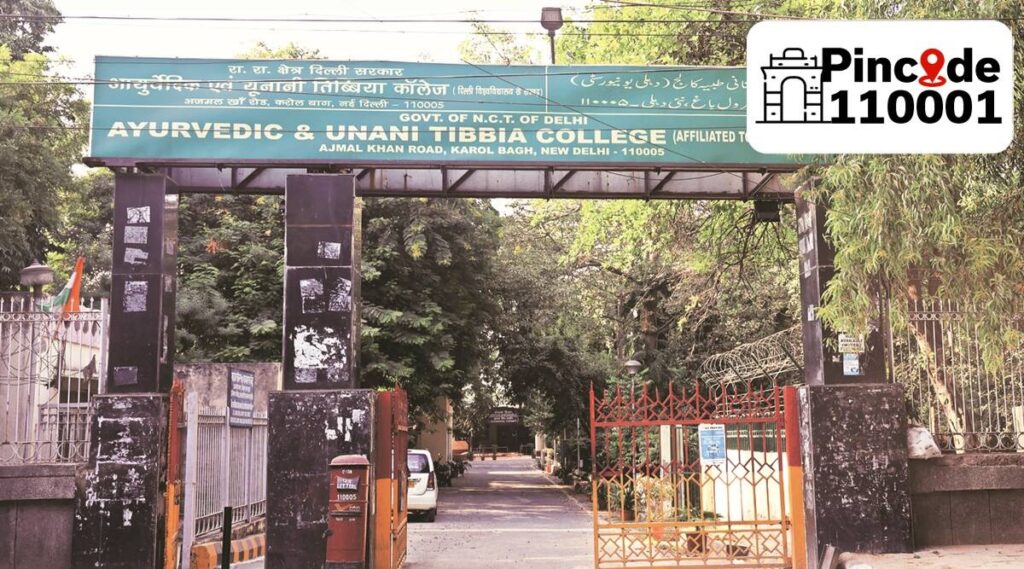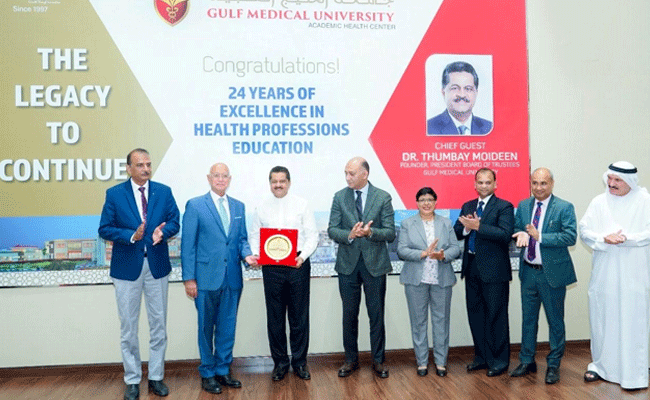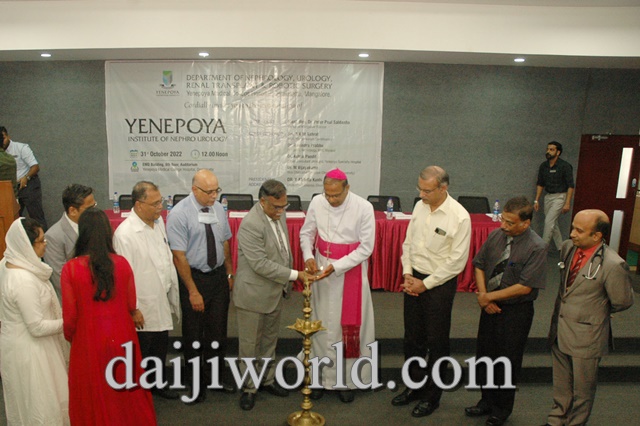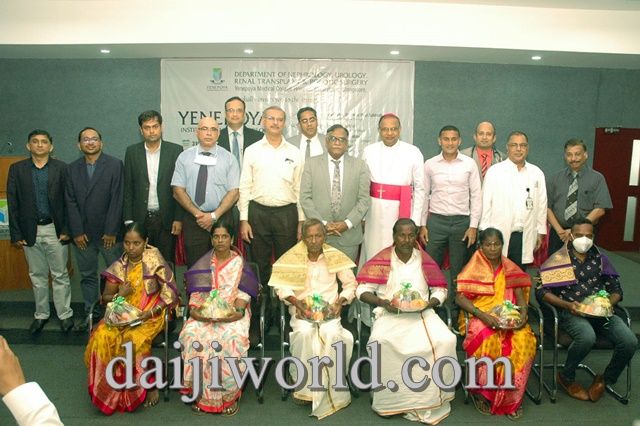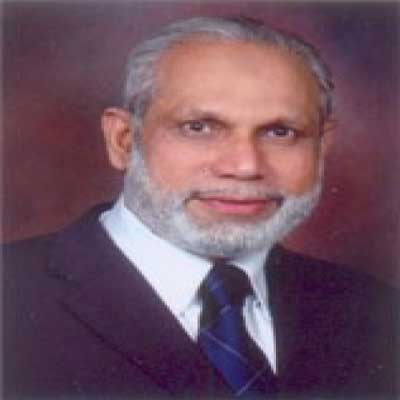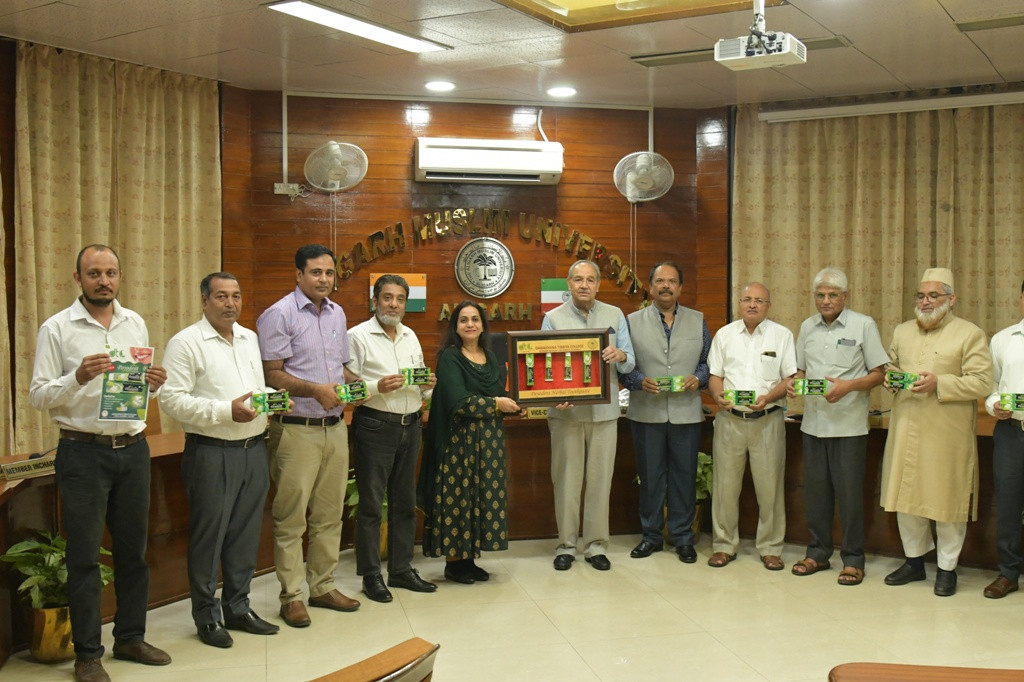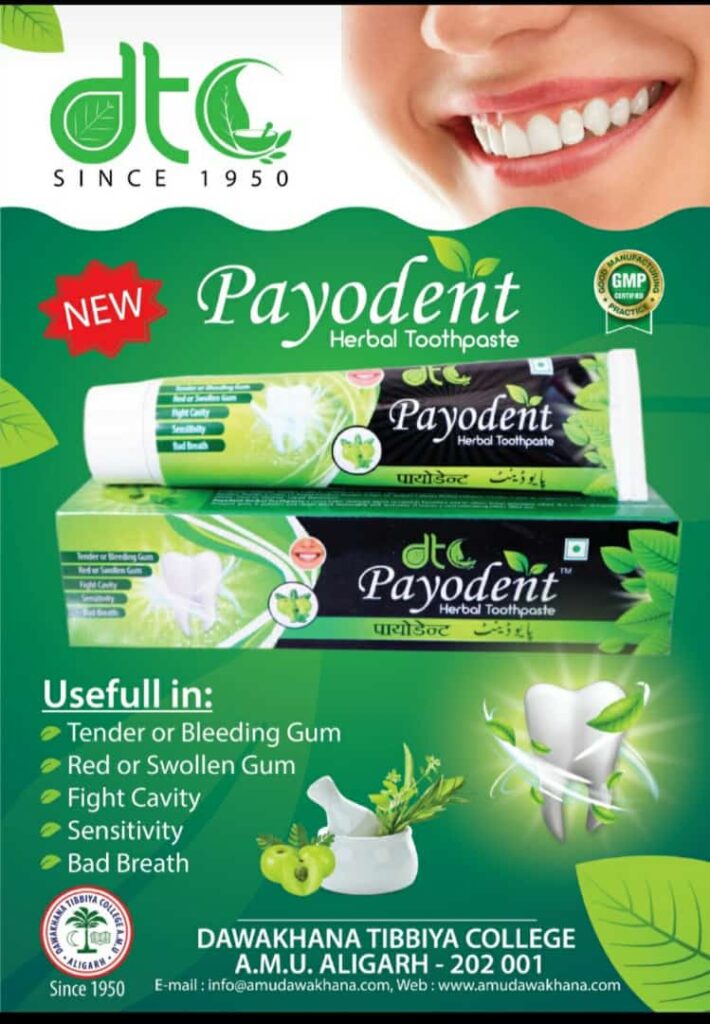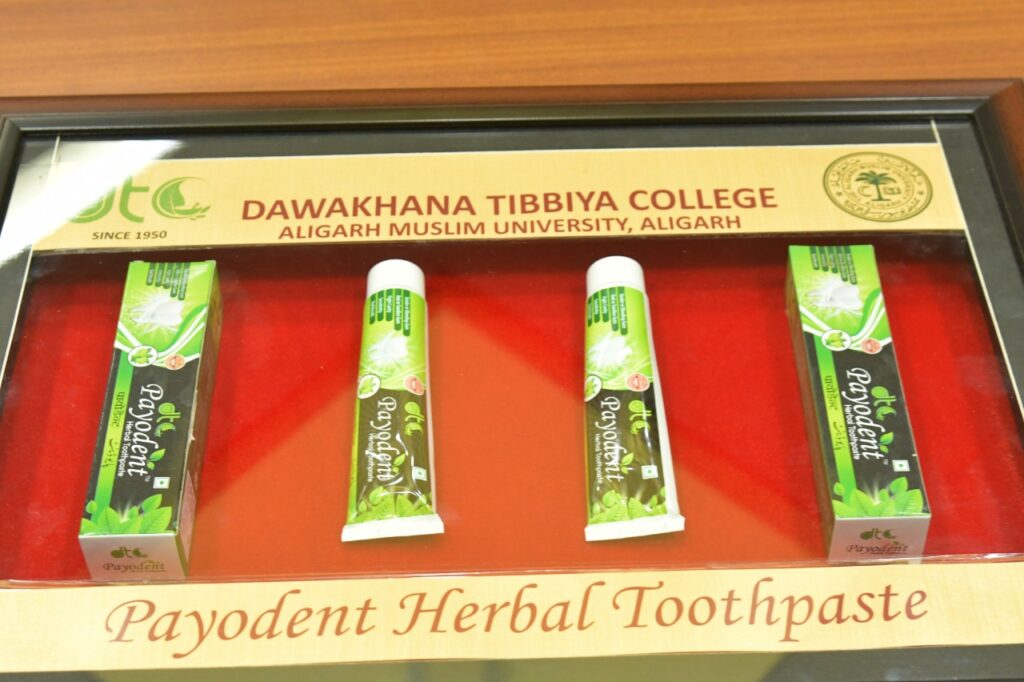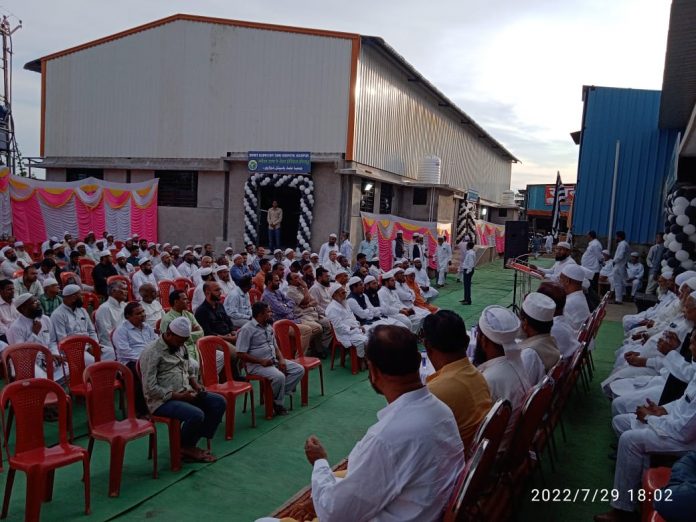NEW DELHI :
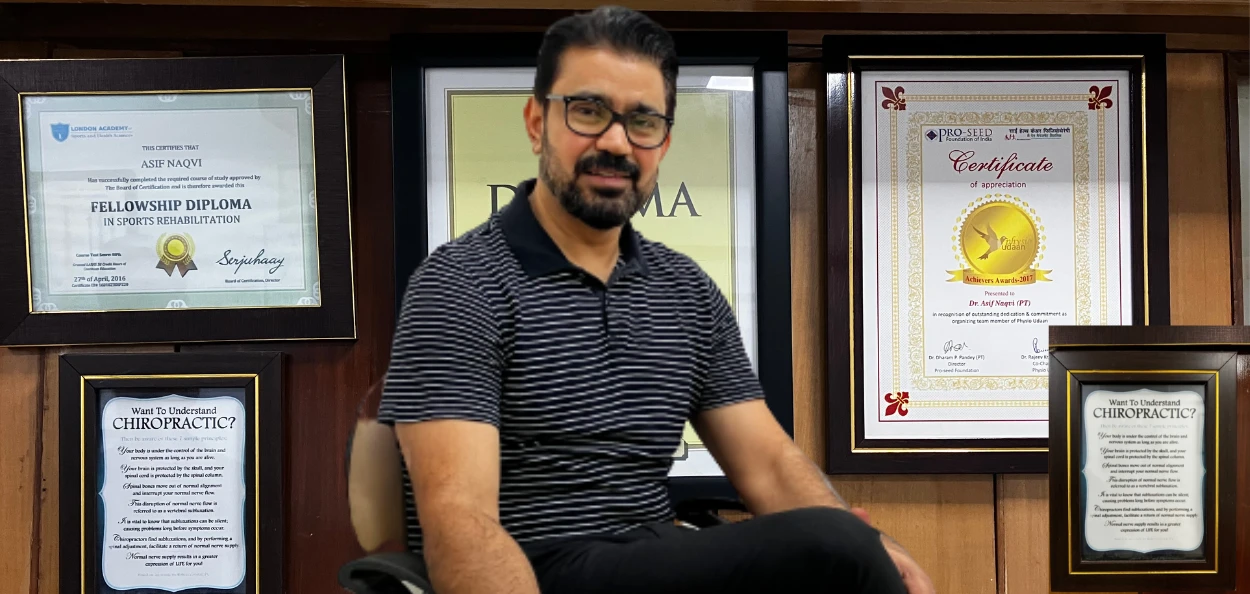
Sitting in his clinic at Defence Colony, Dr. Asif Naqvi reminisces about the year 2012 when he was associated with the then Indian Premier League’s (IPL) Delhi Dare Devils team, and Kevin Peterson was a member of the squad.
Dr.Naqvi told Awaz-the Voice, “Back then Kevin was desperately looking for a chiropractor to adjust his spine and during that time in India nobody had a clue as to what this holistic method of treatment was…”
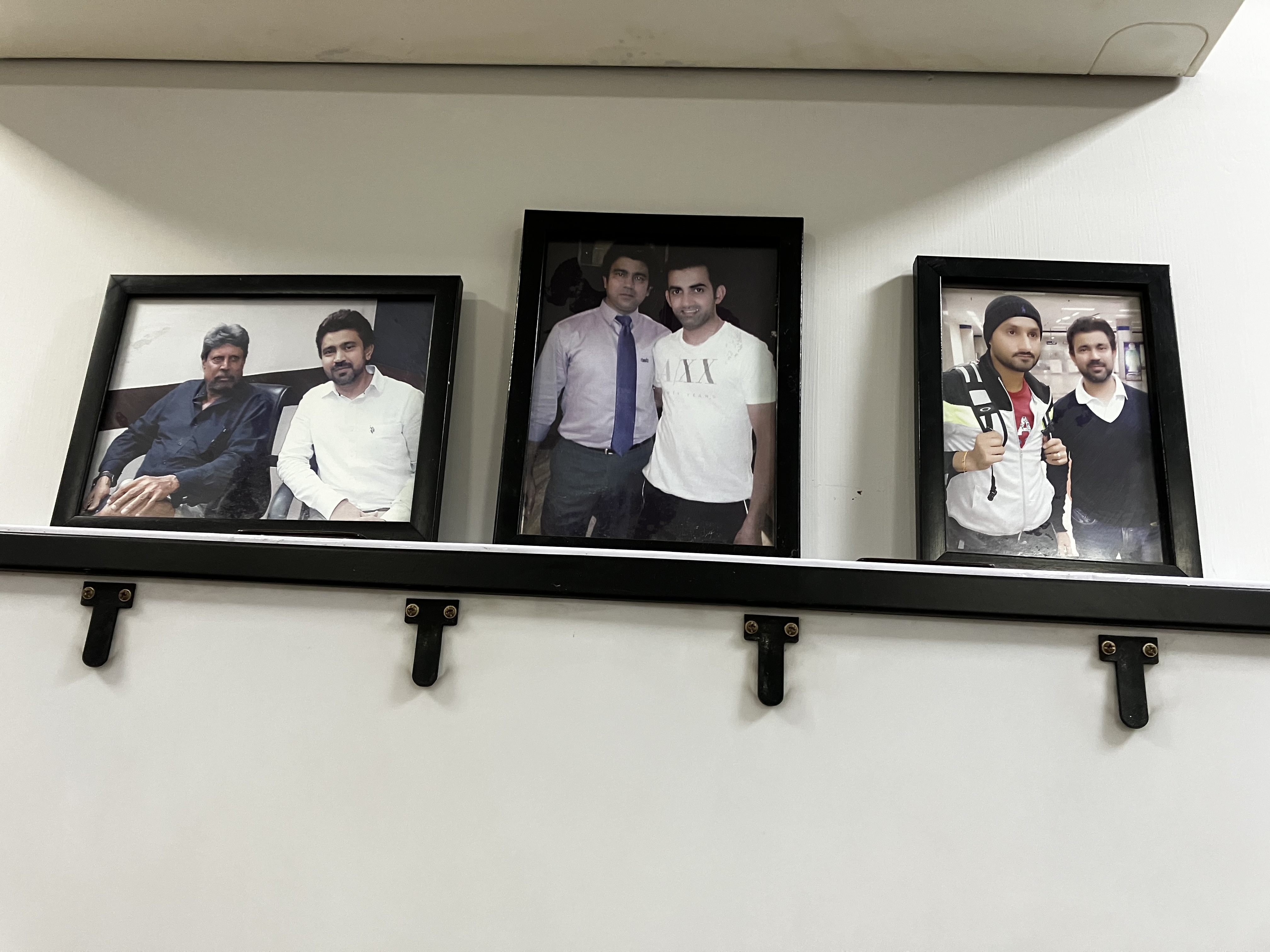
Coming from a sports background Dr.Asif says, “I have been rather I am a cricketer and truly speaking sports is my true love, while growing up I witnessed doctors accompanying the sports team and that inspired me to do something in this field…I was never an ace as a sports person thus I became a doctor to stay connected to my roots…”
After 2012, Dr Asif switched to sports medicine. He joined Sweden’s Ackerman College to study Chiropractic and later obtained a certification in Sports Rehabilitation from London Academy’s Sports and Health Sciences.
Today in South Delhi’s Defense Colony, he runs a clinic where patients are treated most holistically. Awaz- the Voice spoke with Dr.Asif about this journey from a sports physiotherapist to a Chiropractor and about this genre of medicinal therapy. Excerpts from the interview:
Normally people are interested in the more well-known genre of medicine, like gynecology, physiotherapy, neurology, or a plain master’s degree in medicine; why you became a chiropractor?
See, chiropractic is something we can do some manual treatment of your spinal joints. There are many problems where one often pops pills but that isn’t a cure, that is the management of an ailment for say a particular period. For example if one has diabetes, taking medicines would keep diabetes in control but would that be a cure? Of course, not. Similarly, posture misalignment is not a disease that can be cured by popping pills, rather it is a disorder that is prominent due to incessant working hours on the system.
Now if the posture is not correct the spine suffers the most as it is the most important thing in the body; all the nerve roots come out from the spine. The spine connects with your muscles, bones, organs, and everything through nerves, now if there is a posture misalignment, your body is not aligning and any nerve pressure means a disturbed supply from nerves to the respective body parts; this leads to the feeling of pain or weakness. Cervical slipped disc, and vertigo is some very common ailments that patients suffer due to posture misalignment.
In modern Allopathy, one would go for painkillers, but again, that further damages the central nervous system, here in chiropractic we re-align the spine and work on healing the posture, de-compressing the nerves, and so on.
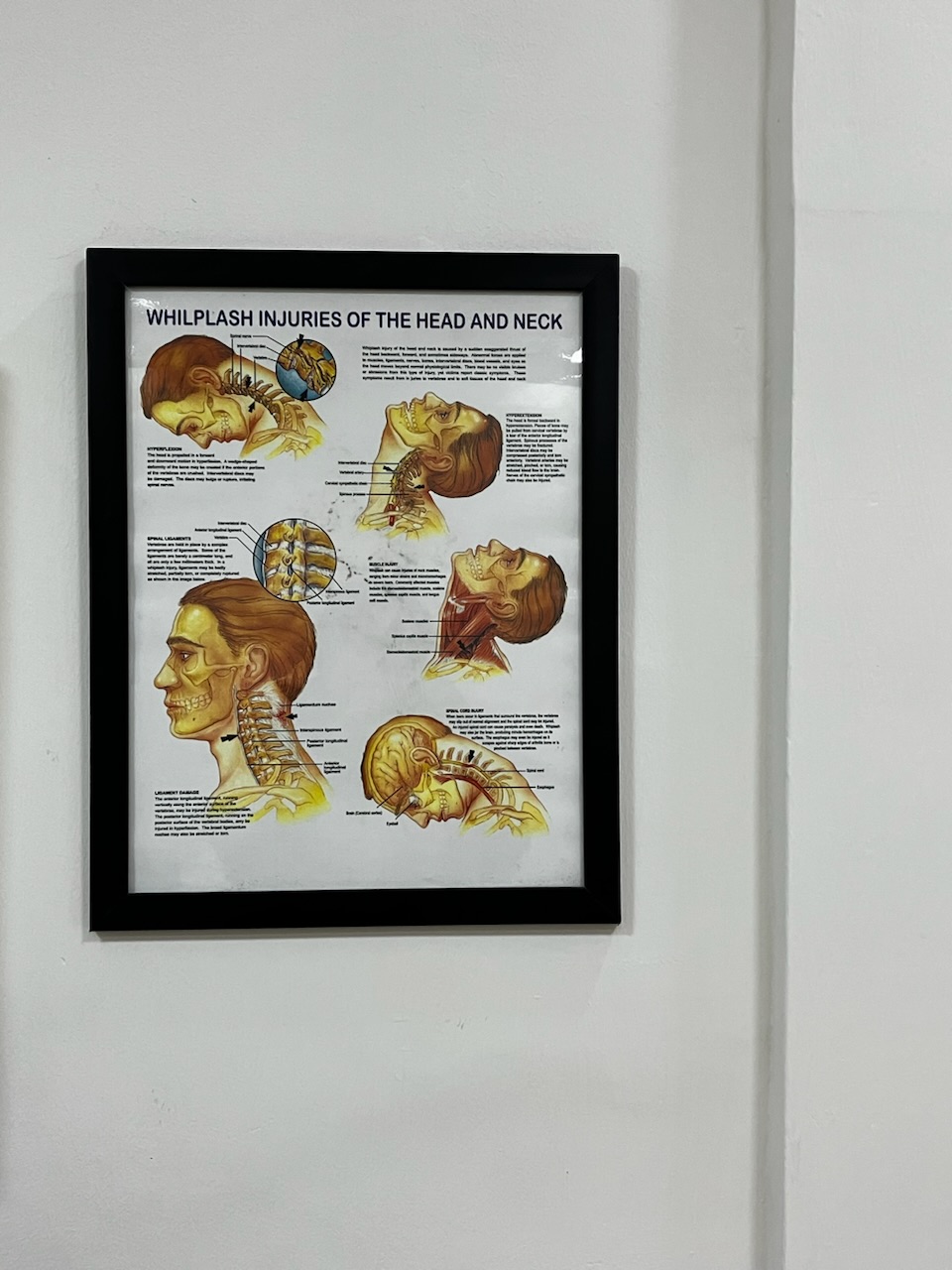
How would you describe decompression to a layman?
Decompression means when you have a disc problem – lots of people nowadays have it – because of sitting on the system for long hours say 10-15 hours a day. Such people develop weak spines. Those who are going to the gym or playing sports can also have such problems.
Thus if you are going to the gym and doing the wrong exercise or doing very heavy exercises, you can injure your back and your disc. Also, it can happen if you have put on weight also. So once you put on weight, there’s extra load on your spine, especially your lower back.
Disc injury is very common nowadays but then this is not a disease but a basic structural problem. These days youngsters can be seen struggling with this problem. Above 60, we may say it is due to age but in the age group of 20, 30, 40, and 50 it is more of a misalignment.
Would you say changing lifestyle is one major reason for people to develop weak spines?
Well, yes, we can say that.
So why did you choose Sweden and London to study Chiropractic therapy?
Reason…It is easier in Europe to get admission than in America; also in Europe, there are n-number of short-term courses available for training as a chiropractor.
From a specialist in sports injury to a chiropractor; how would you describe your journey so far?
As far as my journey is concerned I would say, in the medical sciences or medical field, you always learn, you are always eager to learn new things and there’s always new research that comes and you have to update yourself. And that’s why it’s called practice. You always do the practice. You are never an expert. Exactly. So that’s how you know, we have to keep updating our knowledge and skills in all the related fields. Whether you are doing chiropractic or sports engineering medicine, whatever you are doing, you have to do a lot of fellowships, and crash courses to stay updated in this school.
So, that’s why I still do many courses, because when I see something new, I feel I can improve. I guess I am still learning.
What are the key myths around Chiropractic in India; are people scared of this therapy?
Definitely, they are, as you know, chiropractic is something new to Indians and people have only seen the video; though it looks exciting there when they face it they feel scared. We try to convince them but to date, I come across many patients who don’t allow me to do neck alignment, they say, “neck toot toh nahin Jayega, bone Chetak toh nahin Jayeza..(I will break my neck)”. Especially if somebody is a senior citizen, his children are more scared but we are taught to apply different pressure to different age groups, this practice is safe even for kids.
How do you convince them?
Actually, we give them options like physiotherapy and so on. We try to convince them but if they do not agree then we do not force them. We even get our patients to sign the consent form.
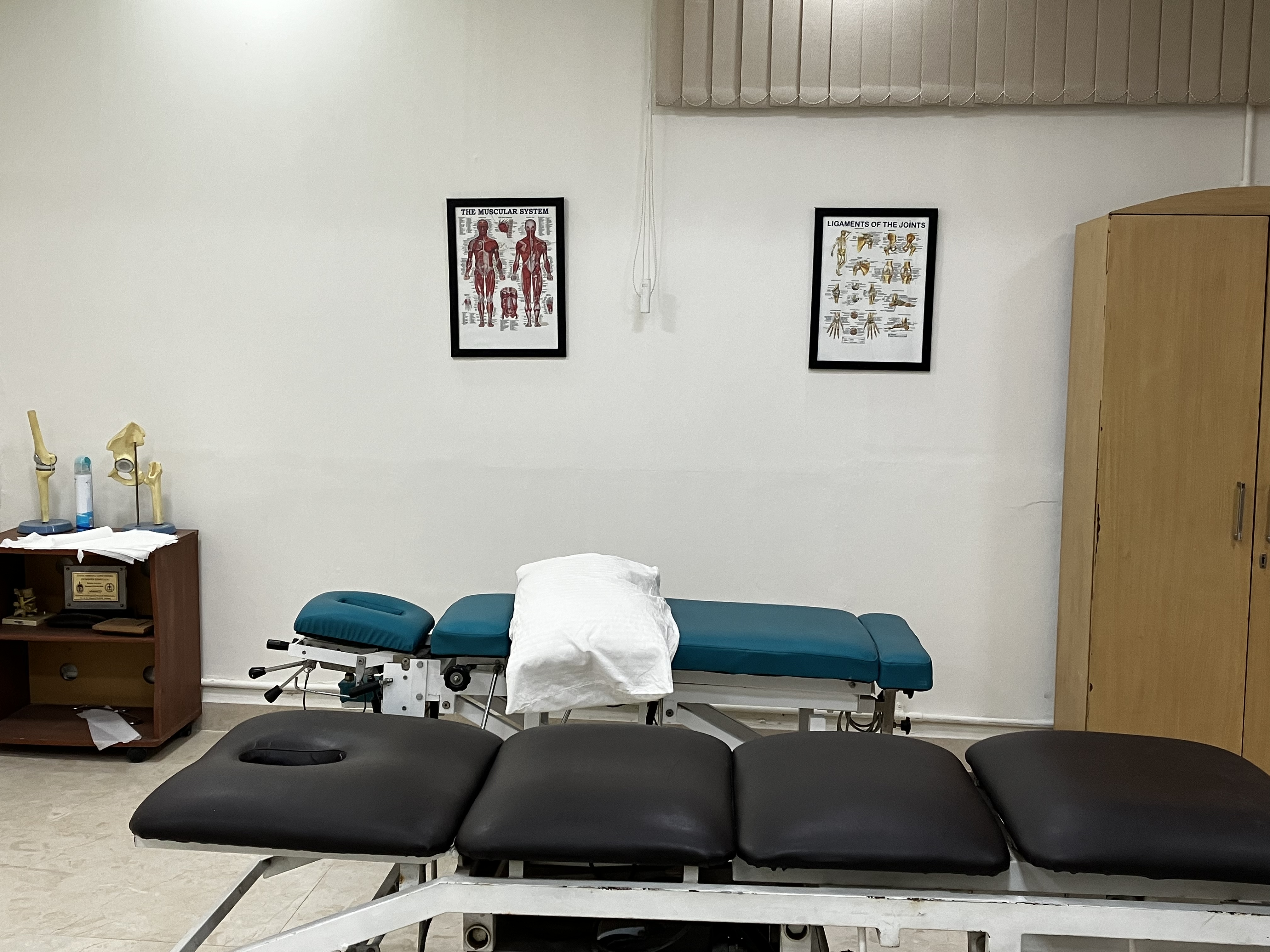
Do you feel the millennials are the approach to holistic methods of healing? If yes, then what would your advice be to them to shun medicines or operations?
See chiropractic is something that is very much required, especially in a country like India which has the largest population, with this approach people can be saved from consuming medicines thus saving one’s liver and kidneys. So in the coming days, people will get fully aware of chiropractic and this treatment being solely for the spine or your joints and the shortest solution for any sports injury.
So that’s all in the coming days and the coming age. From what I see I feel chiropractic care is going to pop up in India and everyone is going to be aware of it. As you know, I’m getting patients from all over India. They come here as they can not find a chiropractor in their place. Also, I have treated patients from Nepal, Bangladesh, Saudi Arabia, and so on…So, they are here because chiropractic cure is somehow not very popular in their countries also.
And when they see the videos online, they understand the therapy. Some people have been suffering for many years, especially from spine-related health issues. And a chronic illness leaves a person paralyzed and dependent upon the family as no hard labour can be expected from him. So, they are looking for a magical treatment.
How affordable is this therapy? I’m sure that many university students who are into sports could need it. How affordable is it for them or say for a middle-class person?
See, right now, obviously, Chiropractic treatment is expensive as there’s no competition. So, the basic thing is that we don’t even have a chiropractic school or college in India. Once we have this infrastructure, once we have a college, and many students are coming out from these then obviously there will be competition and prices will be at par with other therapies. Also, Chiropractic treatment would be more visible, easily available, and cheaper. But right now as it’s a bit expensive I do have students, senior citizens, or economically weaker sections in my consideration and offer them discounts. At times when we feel that some patients are very poor then I have even waived my consultation charges.
Is chiropractor an ancient therapy; like how would you define the root of chiropractic treatment?
Is a part of osteopathy (Bone therapy). You must have heard about the osteopaths and bone setters, in ancient times there weren’t any doctors so these bone setters would use sticks to wrap up the hands or legs. Just like Yoga, this practice is also ancient but today it has caught up the popularity and is spreading more scientifically.
Is there a change in the psyche of patients these days? Do you feel that holistic treatment is catching up with Gen Z?
It is mostly word of the mouth but then so much is available online at times that is a scam too so similarly, we get more and more patients via word of the mouth. I think that in our practice we are getting more patients from the word of mouth. We are treating more patients every day and obviously, people are getting cured and once you get cured, then you obviously refer other patients.
Can you tell me about a patient with chronic illness whom you have treated?
See, there are many. But I will mention about one lady who came from Manipur. She is Sangeeta, she has been advised of surgery. Also at a Delhi hospital, she was treated with injections. She was really in a lot of pain, I have given her 7 or 8 sessions and she is now walking. I will soon upload her interview on my YouTube channel, Dr.Asif Naqvi.
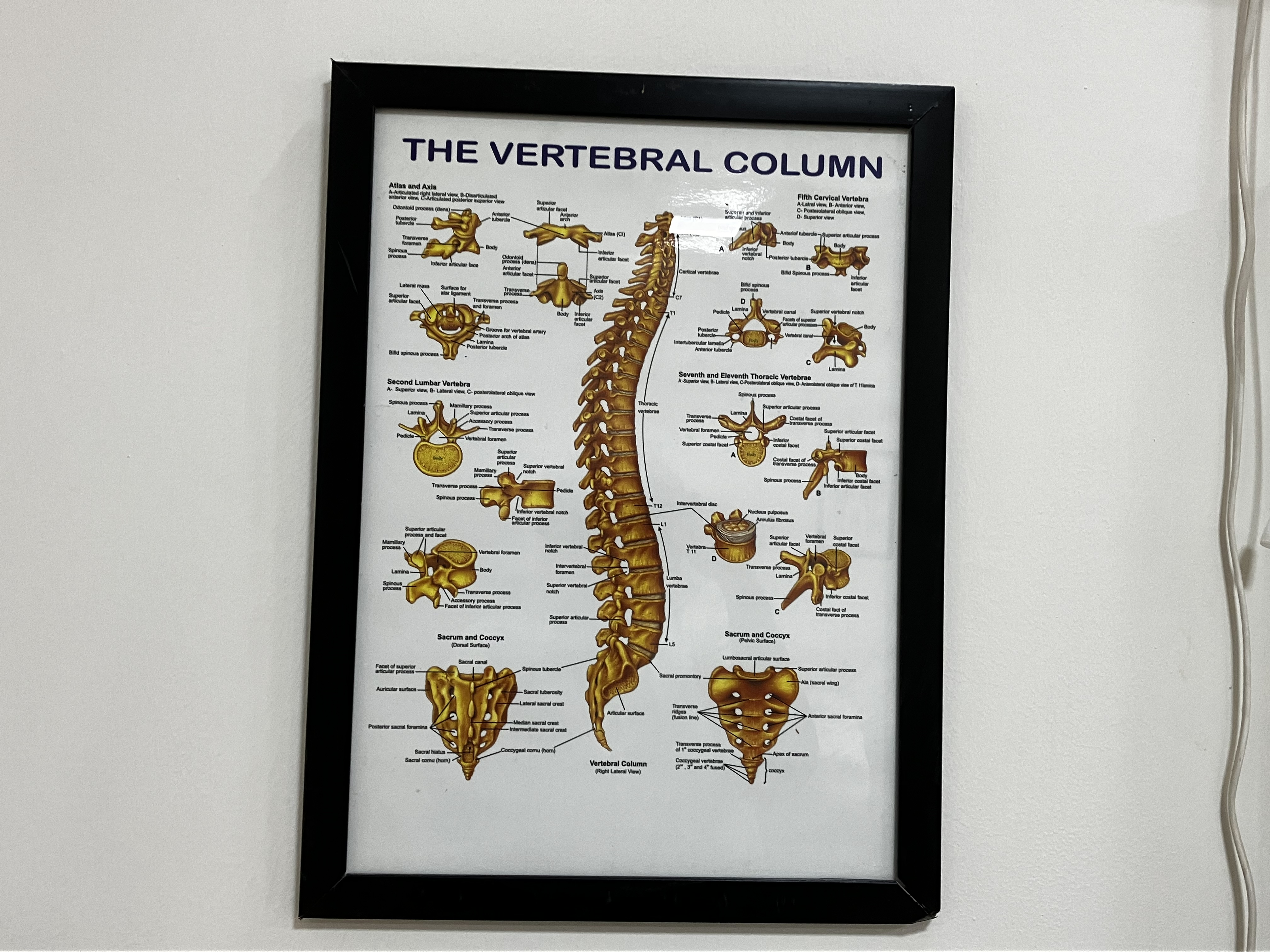
Do you use social media platforms to promote your therapy?
Yes, we do so. Social media is the medium through which we can spread awareness about this field of medicine. However, that alone is not enough. Only if your work is good, you cannot retain patients. I do not like promoting myself but when I see people suffering I wish to help them. I think social media is a good platform to spread awareness about this field of medicine.
How far have we come from 2012 to the present day in the field of chiropractic treatment?
We still have a long way to go as we have a large population and we need good chiropractors. Unless we have colleges and schools in India it is very difficult. it is not affordable for everyone to go to America or to Europe to get an education we must have the course here.
Why one should go to a chiropractor and not for regular medicine? What would your advice be?
Obviously, I am not saying that people should not go for regular medicinal therapies but chiropractic can solve so many problems without making one swallow medicines. I think people prefer this nowadays. Awareness regarding the same is catching up these days. In the West people prefer naturopathy, massage or any treatment with fewer medicines and I guess here too this trend is now catching up. I believe that in the coming days once the awareness about the side effects of the pills increases more and more people would switch to holistic treatments.
How easy or how tough has it been for you?
Initially, when I opted for sports medicine then too it was a tough time as there wasn’t any awareness about this field of practice. Sports weren’t this popular in India back then. A normal sports injury would be taken to a regular doctor. Sports were played for the sake of playing and not for making careers. But today with the advent of IPL and other leagues parents are pushing their kids into sports and more and more as a professional.
So do you have any sportsperson as your client?
Currently, I don’t but yes I have treated Sachin (Tendulkar), Gautam Gambhir, and others
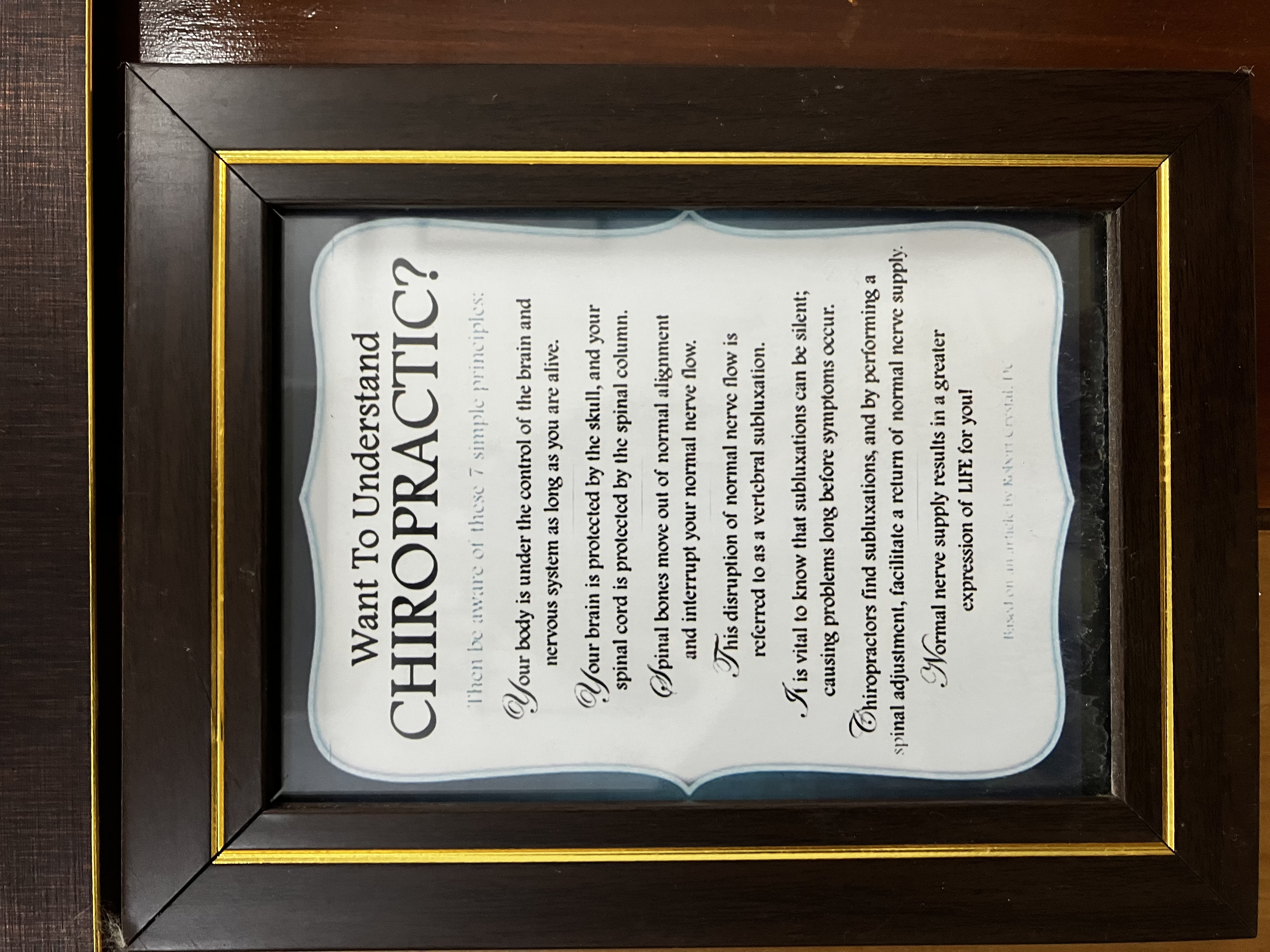
Is a doctor for sports an interesting glamorous job?
I love my job as I am a sports person. To date, I go to the gym and play corporate cricket. I am thankful to Almighty for all the opportunities and I feel proud that I have helped many through my practice. Sports is my inspiration.
source: http://www.awazthevoice.in / Awaz, The Voice / Home / by Shaista Fatima, New Delhi / January 23rd, 2023
